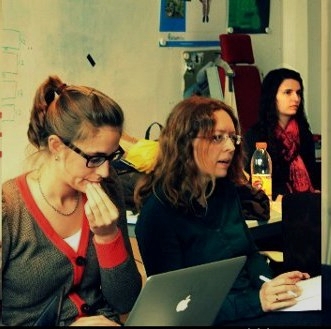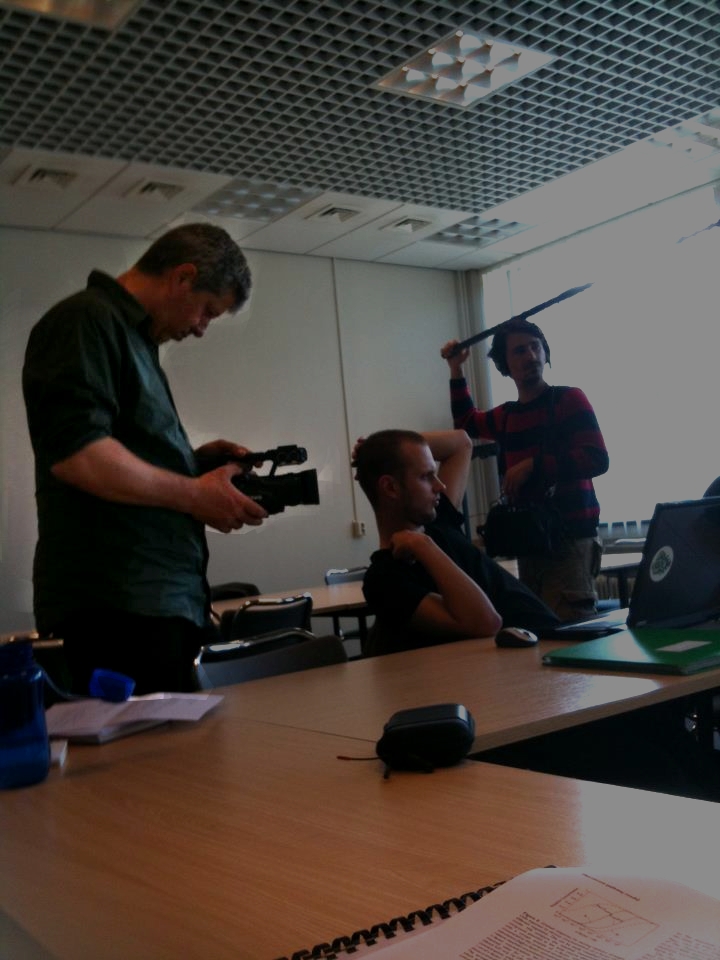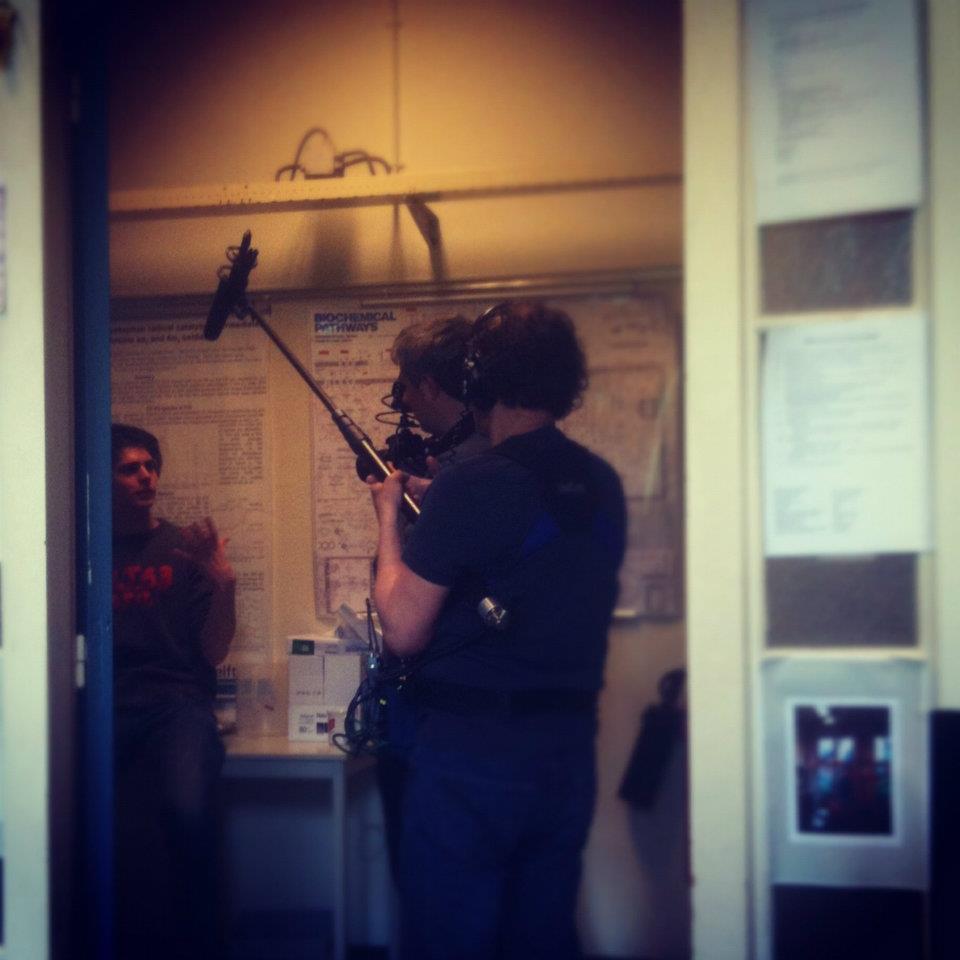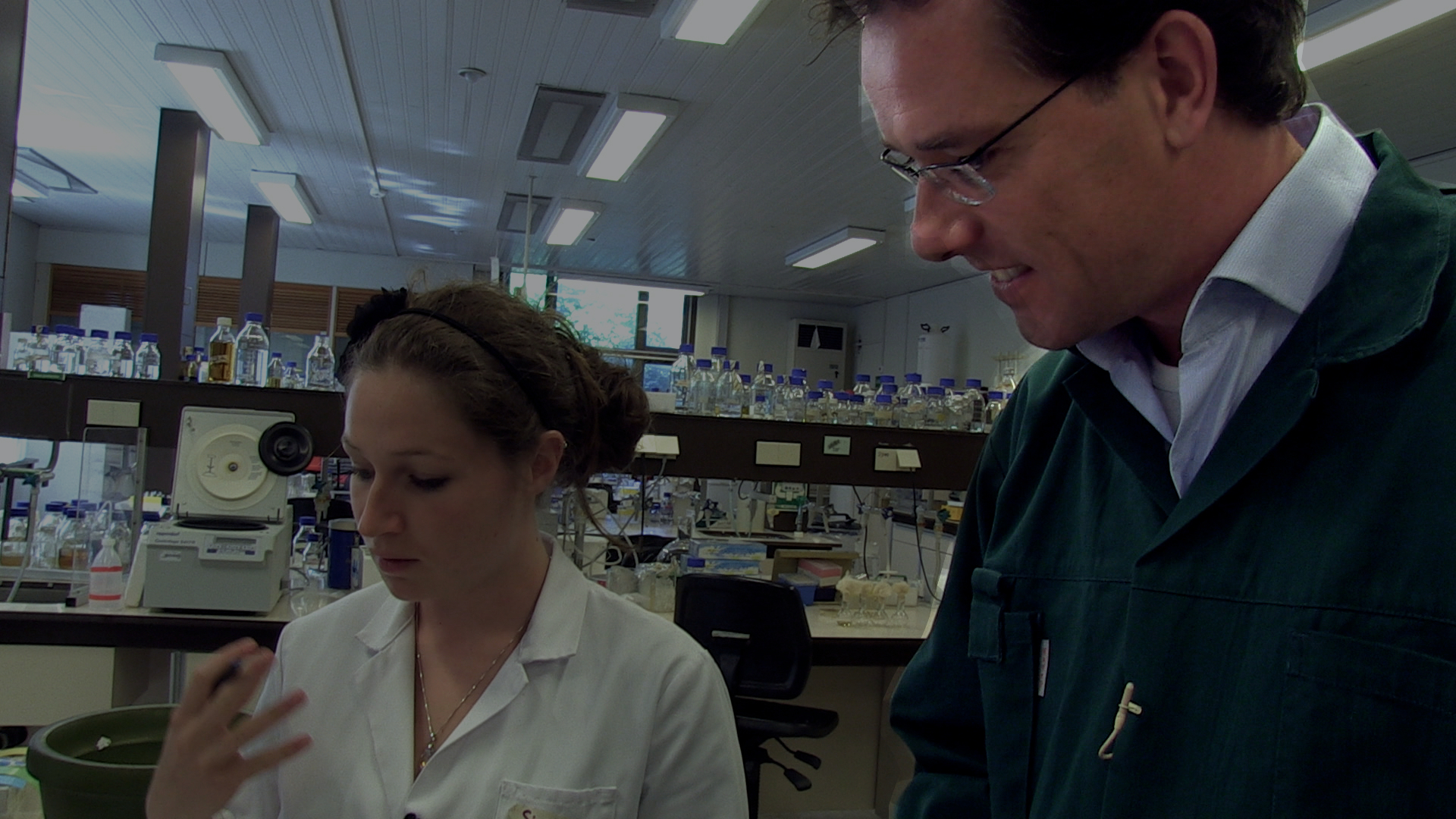Team:TU-Delft/HP
From 2012.igem.org
| Line 103: | Line 103: | ||
By participating in this documentary this team will let a broad audience know about the daily life in the laboratory in the fields of the new technologies (NBIC). The team will inform people about what scientific research is about today. This means more than just doing lab work. Also other daily aspects that are connected to the research were filmed by Frank, like funding, public relations, social events, the team’s expectations of the research and possible applications, basically the whole biotope around a modern research team. | By participating in this documentary this team will let a broad audience know about the daily life in the laboratory in the fields of the new technologies (NBIC). The team will inform people about what scientific research is about today. This means more than just doing lab work. Also other daily aspects that are connected to the research were filmed by Frank, like funding, public relations, social events, the team’s expectations of the research and possible applications, basically the whole biotope around a modern research team. | ||
<br/> | <br/> | ||
| + | <td><a href='https://static.igem.org/mediawiki/igem.org/2/29/Daan03.jpg' rel="lightbox" target="_blank"><img src='https://static.igem.org/mediawiki/igem.org/2/29/Daan03.jpg' height=140 width=195 /></a></td> | ||
<br/> | <br/> | ||
This team had extra help from an embedded humanist, named Daan Schuurbiers, who followed the research as a midstream modulation project. Including Daan to the project, the team became also aware of the social sciences of the research. ‘’Midstream modulation asks how research is to be carried out, which is the main business of research, rather than whether a research project should be carried out, which is an upstream policy question. It is a means to evaluate and adjust research decisions in light of societal factors while the research process is taking place.’’. There are 3 different stages in the governance of science and technology, upstream, downstream and midstream modulation, see figure 1. So by thinking about midstream modulation, this project is connected with the scientific research as well as to the social issues. In this documentary you will see how science will meet the human interest in many ways. | This team had extra help from an embedded humanist, named Daan Schuurbiers, who followed the research as a midstream modulation project. Including Daan to the project, the team became also aware of the social sciences of the research. ‘’Midstream modulation asks how research is to be carried out, which is the main business of research, rather than whether a research project should be carried out, which is an upstream policy question. It is a means to evaluate and adjust research decisions in light of societal factors while the research process is taking place.’’. There are 3 different stages in the governance of science and technology, upstream, downstream and midstream modulation, see figure 1. So by thinking about midstream modulation, this project is connected with the scientific research as well as to the social issues. In this documentary you will see how science will meet the human interest in many ways. | ||
| Line 157: | Line 158: | ||
<tr><td><a href='https://static.igem.org/mediawiki/igem.org/9/9c/Daan01.jpg' rel="lightbox" target="_blank"><img src='https://static.igem.org/mediawiki/igem.org/9/9c/Daan01.jpg' height=140 width=195 /></a></td> | <tr><td><a href='https://static.igem.org/mediawiki/igem.org/9/9c/Daan01.jpg' rel="lightbox" target="_blank"><img src='https://static.igem.org/mediawiki/igem.org/9/9c/Daan01.jpg' height=140 width=195 /></a></td> | ||
<td><a href='https://static.igem.org/mediawiki/igem.org/a/a7/Daan02.jpg' rel="lightbox" target="_blank"><img src='https://static.igem.org/mediawiki/igem.org/a/a7/Daan02.jpg' height=140 width=195 /></a></td> | <td><a href='https://static.igem.org/mediawiki/igem.org/a/a7/Daan02.jpg' rel="lightbox" target="_blank"><img src='https://static.igem.org/mediawiki/igem.org/a/a7/Daan02.jpg' height=140 width=195 /></a></td> | ||
| - | + | ||
</tr> | </tr> | ||
</table> | </table> | ||
Revision as of 18:06, 24 September 2012


We are also part of a documentary called Lab-Life, which is filmed by Frank Theys. In this documentary he follows the daily life of the scientific research project of our team. For this documentary an embedded humanist, Daan Schuurbiers was partly involved with our project. His professional view on social sciences helped this team a lot.
Furthermore during the European jamboree this team will organize together with the Rathenau Institute a debate called Meeting of Young Minds. The subject of this debate will be the H5N1 virus and weather the research manuscript should have been published. This will be a very interesting debate with different experts, the team and of course the audience!
Collaborative learning |
|
|
During the brainstorm sessions a MSc student in Educational studies, Amalia Ephrat had recorded the way this team came to their final topic Snifferomyces! The team helped her to study the collaborative learning activities between students with different international backgrounds within the learning context of the University. |
|
 |
 |
 |
 |
Who is Amalia Ephrat?
Amalia Ephrat is a MSc student in Educational studies at Leiden, she
did a short internship focused on collaborative learning
activities between students with an international background within
the learning context of the university.
When students of diverse backgrounds participate in a project where
collaborative learning is important, the individual differences can
pose a series of challenges to the group processes. This is a well-
known challenge for many Dutch universities, which makes it a relevant
topic for educational research to investigate the means for
intervention and the effects of those interventions on collaborative
learning processes and outcomes.
Her plan is to improve collaborative learning amongst students of
different backgrounds, by designing research and conduct measurement
during the brainstorming phase of the project. Research shall consist
of qualitative exploratory methods using observational methods and
interviews and quantitative research using several questionnaires,
including collaborative skills, empathy and intercultural conflict
management.
The main focus of her research is the collaborative process in the
iGEM group and the efficacy of the interventions of the supervisors to
support the collaborative process in a culturally diverse group of
students.

 |
 |
 |
 |
 |
 |
Who is Daan Schuurbiers? |
|
|
|
 |
 |
 |

</tr> <tr>
<td colspan="2" align="left">Meeting of Young Minds
</td> </tr> <tr> <td>
<td>
[Under construction]
 "
"


